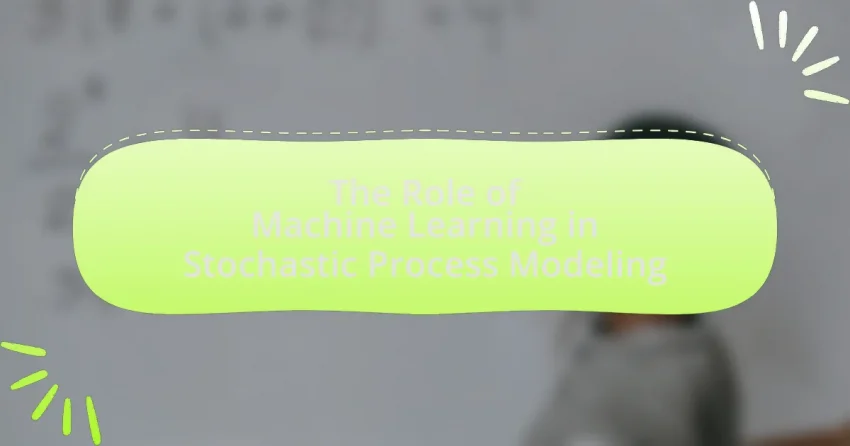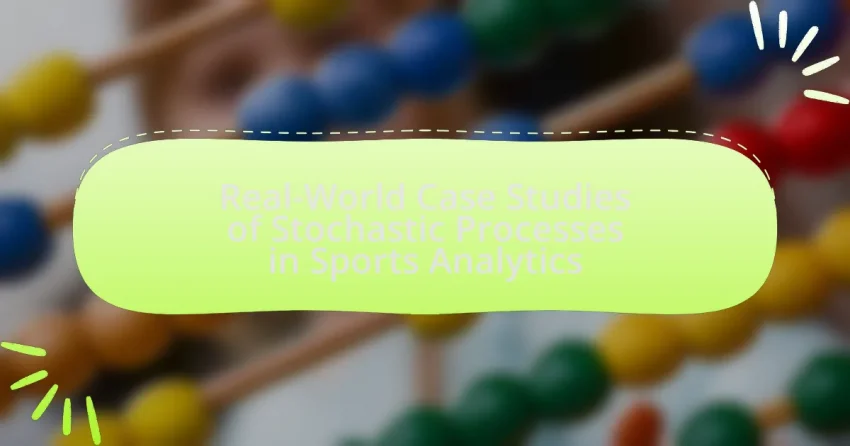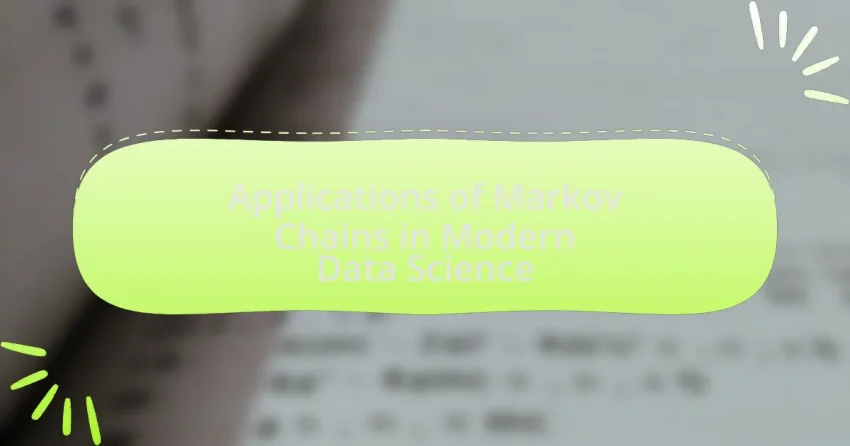Bayesian methods in stochastic processes are statistical techniques that utilize Bayes’ theorem to update probability estimates as new data emerges, allowing for the integration of prior knowledge and uncertainty in modeling dynamic systems. This article explores the differences between Bayesian and traditional statistical approaches, emphasizing key principles such as prior beliefs, likelihood, and posterior distribution….
The Role of Stochastic Processes in Financial Risk Assessment
Stochastic processes are mathematical models that capture the randomness and uncertainty inherent in financial markets, playing a crucial role in financial risk assessment. This article explores the significance of stochastic processes in modeling asset prices, interest rates, and various financial risks, highlighting their application in methodologies such as the Black-Scholes model and Monte Carlo simulations….
Teaching the Fundamentals of Poisson Processes in Probability Theory
Poisson processes are mathematical models in probability theory that describe the occurrence of random events over a fixed period of time or space, characterized by a constant average rate. This article provides a comprehensive overview of Poisson processes, including their mathematical definitions, key properties, and real-world applications in fields such as telecommunications, traffic flow, and…
Integrating Simulation Techniques in Stochastic Process Education
Simulation techniques in stochastic process education are essential methods for modeling and analyzing systems characterized by randomness and uncertainty. This article explores various simulation methods, including Monte Carlo simulations, discrete-event simulations, and agent-based modeling, highlighting their effectiveness in enhancing student understanding of complex stochastic concepts. It discusses the advantages of experiential learning through simulations compared…
Introduction to Monte Carlo Methods in Stochastic Processes
Monte Carlo methods in stochastic processes are computational algorithms that utilize repeated random sampling to derive numerical results, particularly in complex systems where analytical solutions are challenging. This article explores the relationship between Monte Carlo methods and stochastic processes, highlighting their key characteristics, applications in fields such as finance and engineering, and their significance in…
The Role of Machine Learning in Stochastic Process Modeling
Machine learning significantly enhances stochastic process modeling by improving the analysis and prediction of complex systems characterized by randomness. This article explores the integration of machine learning techniques, such as neural networks and decision trees, with stochastic modeling, highlighting their ability to identify patterns and relationships within large datasets. Key concepts of stochastic processes, including…
Real-World Case Studies of Stochastic Processes in Sports Analytics
The article focuses on real-world case studies of stochastic processes in sports analytics, highlighting their application in predicting player performance and game outcomes. It discusses the use of mathematical models, such as Markov chains and Poisson processes, to analyze the inherent randomness in sports, providing insights into player behavior and game dynamics. Key characteristics of…
Implementing Stochastic Differential Equations in Simulations
Stochastic Differential Equations (SDEs) are mathematical models that incorporate randomness to describe dynamic systems influenced by uncertainty, widely applied in fields such as finance, physics, and biology. This article explores the fundamental characteristics of SDEs, their differences from ordinary differential equations, and their significance in modeling real-world phenomena. It also discusses various numerical methods for…
Analyzing Simulation Output: Statistical Techniques for Stochastic Processes
Analyzing simulation output in stochastic processes is a critical process that involves interpreting data generated from simulations modeling random phenomena. This article explores the definition of simulation output, key characteristics of stochastic processes, and the statistical techniques employed for analysis, such as descriptive statistics, confidence intervals, and hypothesis testing. It highlights the importance of analyzing…
Applications of Markov Chains in Modern Data Science
Markov Chains are mathematical systems that model transitions between states based on probabilities, with significant applications in data science. This article explores their role in various fields, including natural language processing, recommendation systems, and predictive modeling. Key components such as states, transition probabilities, and the Markov property are discussed, along with different types of Markov…









